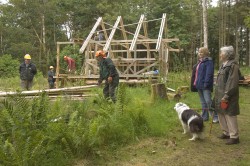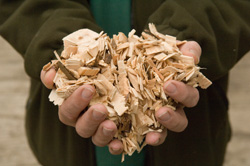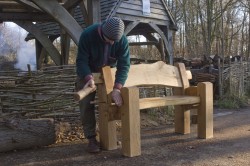Summary
What are the key factors for successful woodland social enterprises?
Summary
The Forestry Commission is committed to sustainable local and community development and cohesion. Support for woodland-based social enterprises is a relatively new approach. Forest Research studied several case studies to describe the activities and impacts of these organisations, looking at barriers to, and drivers of, their success.
Key findings
Enabling factors
- Available financing, typically in the form of grants or loans
- Non-financial support from civil society agencies and public bodies such as the Forestry Commission
- Sufficient existing capacity within communities, including experience, knowledge and time
- A clear demand for services and/or goods offered
- Strong leadership and the ability of key members of an enterprise to work together
- The use of the community right to buy law and the National Forest Land Scheme in Scotland
Barriers
- Imposition of bureaucratic hurdles and institutional barriers by public bodies
- Public sector procurement and asset transfer processes which assess ‘best value’ in only economic terms
- Complex governance if enterprises register as charities but create a trading subsidiary
Recommendations:
- Joined-up thinking across government departments and policy
- Adequate financing of support services
- Giving social enterprises the same tax benefits as charities
- Recognition of non-charitable social enterprises by grant bodies
- Less restrictive right to buy in Scotland
- Creation of a social enterprise leadership training programme
- Changes to public commissioning, procurement and asset transfer processes
- A standardised framework for monitoring and evaluating benefits and impacts
- A dedicated funding mechanism for woodland-related social enterprises
- Long-term leases of the public forest estate to communities across the UK
- Greater priority to the use of the public forest estate to support social enterprises



Publications
Report – Woodland-related social enterprise: enabling factors and barriers to success
Funders and partners
Commissioned and funded by the Forestry Commission.
Status
This project ran from 2009-2011.
